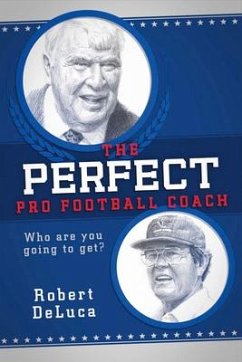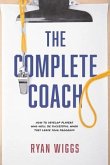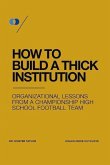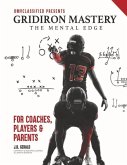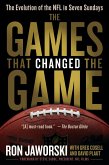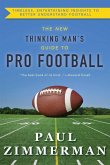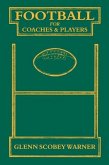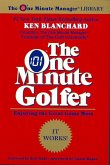"Success", as defined within the head coaching fraternity in the National Football League, is really quite simple: (1) be a winner, and (2) get your team to the post season. Defining success, however, is infinitely easier than finding someone who can make it happen. The task of bringing in a new head coach is necessarily daunting since successful coaches come in all shapes, sizes, philosophies, and approaches. It would certainly seem that NFL franchises, who lead us to believe that they are the epitome of sagacity and sophistication, would have by now refined the process to solve the most critical dilemma they all face. Clearly, though, that is not the case. There is scant regard for historical perspective beyond what the last poor soul did not accomplish. Is it any wonder that so many new coaches prove to be flops right out of the box? There should be a better way. The Perfect Pro Football Coach shows that there is. Grounded strictly objective historical perspective, The Perfect Pro Football Coach takes an in-depth look at head coaching in the NFL over the past fifty plus years. The first order of business is to establish and define the real performance parameters of the head coaching position. Just what makes a good coach? We tried to take all the emotion out of the equation and developed four simple basic quantitative indicators that define success for an NFL head coach. We really don't care if an individual was liked and revered by fans or not. How his teams performed on the field is all that matters. To measure performance we developed the Coaching Assessment Scoring Hierarchy ("CASH") rating system which provides a straightforward, yet incisive way to readily rank and compare all of the almost 300 head coaches who have prowled the sidelines since the AFL-NFL merger in the 1960's. Using the CASH system, we then rank every coach from number one to the end: from best to worst. There are more than a few surprises on the list which we present in its entirety. With our rankings in hand, we then focus in on the All-Time "Best Ever" and "Worst Ever" individuals. We closely scrutinize the careers of these two polar opposite groups by slicing and dicing all the salient credentials of the great, and not-so-great, coaches and then blend them together to produce the "perfect coach". What did Don Shula, for instance, have that Dan Henning did not? There are sections in the book where we look in depth at the careers of our ten best and ten worst coaches. There are enough numbers and charts to be interesting without crossing the line of statistical paralysis. We believe it will be fascinating for the reader to find where his "special coach" on our all-time list, but we have even taken the analysis a bit further. We thought it would be very interesting if we could apply what we have learned not only to the past but also going forward during the actual selection of new coaches. To accomplish this ambitious task we came up with a "Success Predictably Indicator", which enables the credentials any prospective coach to be compared to the credentials of the best (and worst) of all time. The more your new guy resembles the best, the more likely you won't be firing him in three years. To add meat to our skeleton, back in 2009 we ran "Success Prediction Indicators" for the nine new head coaches that year. Rex Ryan was a prominent member. We watched as it took about five years for all of them to wash out one way or another. We missed on a couple, but for the most part we were right in about two-thirds of the cases, a far better batting average than the NFL owners. With team fortunes so closely tied to the head coach, the spotlight has never been more brightly focused on who is running the show. Our rankings are designed to stimulate discussion among fans. "Bill Belichick is the best ever." "You're nuts!" The Perfect Pro Football Coach can solve the argument.
Hinweis: Dieser Artikel kann nur an eine deutsche Lieferadresse ausgeliefert werden.
Hinweis: Dieser Artikel kann nur an eine deutsche Lieferadresse ausgeliefert werden.

